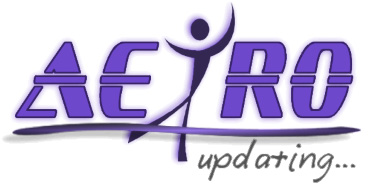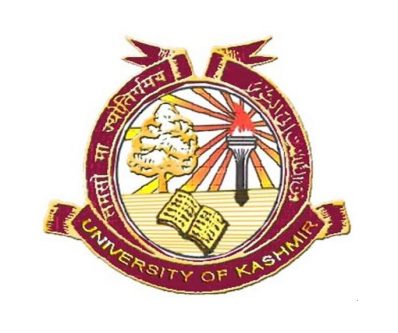Hello aspirants.
Today, I will throw some light on how to get yourself into MBA / IMBA program of Business Schools. My main focus here will be on The Business School, University of Kashmir. However, these guidelines more or less will be same for all the business schools across the country.
First things first, let me Introduce myself. I am a banker by profession and teaching has been my passion. I graduated from Islamia College of Science and Commerce in Business Administration and have done my masters from The Business School, University of Kashmir in the same stream. Back then, University held its own examination to shortlist candidates for MBA and IMBA program. However, from past couple of years, University has started considering marks obtained in MAT ( Management Aptitude Test) for MBA ( Masters in Business Administration) and UGAT (Under Graduate Aptitude Test) for iMBA ( Integrated MBA).
I have seen myself struggling through this stage. I didn’t really know how I am going to get through the written examination, the Group Discussion and the Personal Interview when there were only few seats available in general category at the B School. There was support from family and friends, but no real guidance. I came up with this post to help you go through this admission process smoothly.
At this point, I assume you are an undergraduate seeking admission in iMBA or a graduate seeking admission in MBA program. My first advice will be “Keep your goals clear”. During this stage, there are lots of people talking in your ear. You will soon get confused about which stream to choose. However, keeping your head straight will help you focus more on your goals.
Now that you have made up your mind to get into B school, you need to register for MAT or UGAT. As, I already mentioned MAT will get you In 2 year MBA program with four semesters and UGAT will get you in 5 years IMBA program with ten semesters. IMBA is actually both a graduate and a post graduate degree.
Most of the students ask me this question: Should we really go for IMBA?
I strongly recommend going for this course. I myself have actually wasted some time going through some subjects twice, first in BBA and then in MBA. However, in IMBA, you have different subjects all throughout the course. Again, you straight away get university level exposure which will help you immensely building your personality. In short for me,
IMBA >>> BBA + MBA.
First of all you need to register for UGAT or MAT Exams. Here is some important Information:
Important Dates For The Forthcoming UGAT Test
| Test Date | 09 May 2015 (Saturday) |
| Reporting Time for the Test | 0900 Hrs |
| Last Date for applying online | 29 April 2015 (Wednesday) |
| Last Date of receipt of printout of UGAT Online Registration Forms at AIMA, New Delhi alongwith Demand Draft of Rs.500/- | 01 May 2015 (Friday) |
| Filled forms received at AIMA, New Delhi after the last date will be rejected | |
| *AIMA reserves the right to change the test date in case of any unforeseen eventuality. | |
Syllabus
-
English Language
grammar, punctuation, passive, nouns, adjectives, verbs and proverbs, articles direct and indirect speech, sentence formation, adverbs grammar, reading comprehension, verbal reasoning and verbal ability.
For English Language, I recommend going through these topics with special emphasis on synonyms, antonyms and paragraphs. You need to read paragraph question first and then the Paragraph itself. Also go through synonyms and antonyms. This section will really test your English Comprehension. Reading newspapers will help you in the section “Spotting of errors”. There are 40 questions in this section (According to UGAT 2014) as opposed to 30 each in other sections. You can score high in this section without consuming a lot of time.
-
Numerical and Data Analysis
Numeric calculations, linear equations, matrices, basic properties of sets and groups, scalars, vectors, coordinate systems, tensors and transformation
This portion is all about time management. If you can calculate quickly, you can get good points in the section. For you, we have listed some important tricks that will definitely help you save some precious time calculating. View all of these in our section MATHEMAGICS. I strongly recommend the following sections: basic Numerical Aptitude, HCF/LCM, Profit/Loss, Probability and Permutations and Combinations. Try to solve these questions as quickly as possible and you will definitely excel in this section.
-
Reasoning and Intelligence
General reasoning ability, puzzles, original and varied questions, numerical, riddle and every general and familiar thing.
In reasoning section, you need to concentrate more on numerical reasoning, blood relations and puzzles. With practice, you can master this section. “Reasoning and Intelligence” will contain only 30 questions and you can score more in these sections: queues, seating arrangements, and blood relations. There are clubbed questions that has only one scenario and 3-5 questions following it. If you can solve these questions, you can earn some easy points..
-
General Knowledge
General awareness, current affairs, social development, politics, economy, foreign relations, Social issues, business related topics etc.
General Knowledge is something you cannot learn overnight. I recommend going thoroughly through newspapers and buy a monthly digest magazine like News & Events. Keep some time spare for a news show later in the night and remain updated about the recent developments across the world. As you exams approach nearer and nearer, spare lesser time for this section and concentrate more on Numerical ability and Reasoning.
UGAT EXAMINATION PATTERN:
- There are total of 130 questions, 40 in English Comprehension, and 30 each in three subjects.
- All the questions are multiple choice questions.
- Duration of exam is 2 hours.
- Each question bears One mark.
- There’s no negative marking in this section.
- Official site: www.aima.in
MAT EXAMINATION PATTERN:
- There are total of five sections in this exam.
- 200 questions.
- 150 minutes.
- There’s negative marking for each wrong answer.
University of Kashmir Policy:
The selection of a candidate shall be based on his/her performance in the Entrance Test(MAT/UGAT) and the qualifying examination(Group Discussion/Personal Interview). The Entrance Test shall carry weightage of 60% and the qualifying examination will carry weightage of 40%. The merit obtained by the candidate in the Entrance Test (out of 60 marks) shall be combined with the aggregate marks obtained in the qualifying examination (reduced to the base of 40). In case a candidate becomes eligible for admission to a programme/course because of an additional subject, marks obtained in the qualifying examination together with marks of additional subject shall be reduced to the base of 40 for determining the interse merit of such a candidate. Overall merit of the candidates shall be thus determined out of 100 marks.
Where two or more candidates have secured equal marks out of 100 for admission to a particular programme/course, the tie shall be decided on the basis of marks secured in the subject in which the admission is sought, taking the marks of all the three years of BA/ B Sc / B Com etc into account. However, where the subject offered is not taught at the undergraduate level or where the admission is sought on the basis of an allied subject and also in the case of LLB, BA LLB, MLIS, M Com and Mass Communication and similar other programmes, a tie shall be decided on the basis of aggregate marks secured by the candidate in the qualifying examination, i.e., a candidate with higher aggregate marks shall be given preference.
I think this is enough for now. I will keep updating this post throughout this sessions. Keep visiting this page. You can also like us on facebook or subscribe to out new posts via email and remain notified.
I hope this post was helpful. Don’t forget to share with friends you care.



